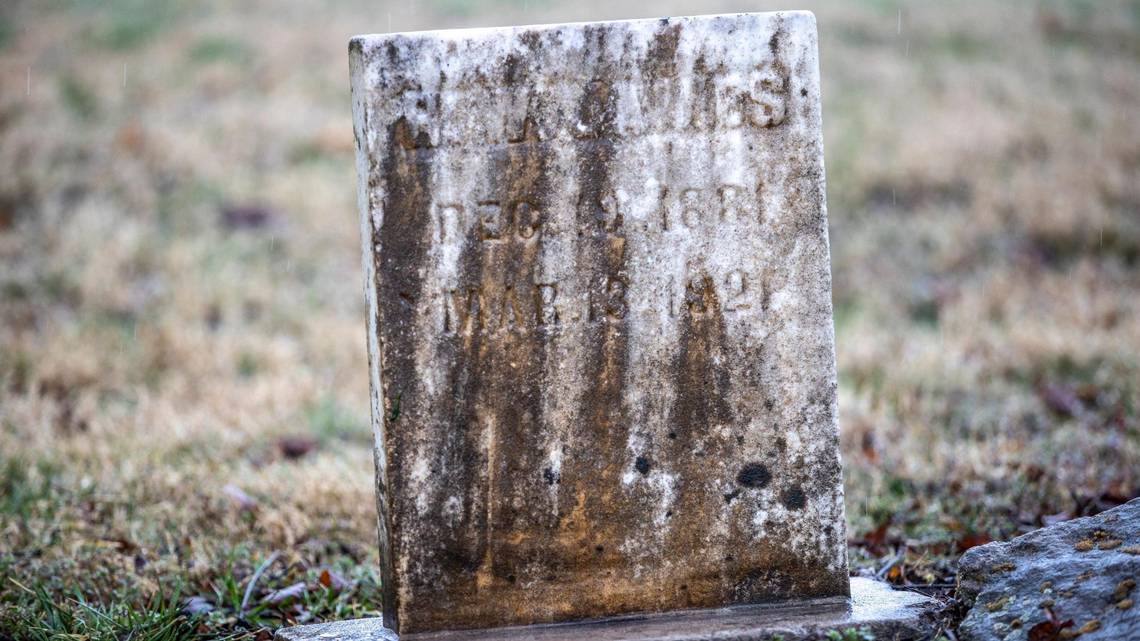
Richard James' headstone. Lexington Herald-Leader photo.
Lynchings and other racial violence were prevalent in the state of Kentucky at the end of the nineteenth century and through much of the twentieth century. Historian George Wright estimates there were 353 people lynched in Kentucky between the end of the Civil War in 1865 and the murder of Emmett Till in 1955, “placing Kentucky ninth among states with the largest number of mob murders.” For instance, between 1877 and 1934, Fulton County, Kentucky witnessed 19 lynchings of African Americans. This number included the entire Walker family in 1908, a family of seven African Americans who were killed by Night Riders, local members of the Ku Klux Klan. From the western border of Missouri to the eastern border of North Carolina, nearly every county in Kentucky recorded a lynching. Racially-motivated violence has become the focus of renewed attention recently, after the killings of Breonna Taylor in Louisville and George Floyd in Minnesota led to a summer of racial reckoning and protests in 2020. Importantly, while protests have emphasized the injustice of these murders, those killed must be remembered as more than victims. They must be remembered for the lives they led before they died. This project documents the lives lost to racist violence.
Faculty lead: Dr. Nikki Brown

